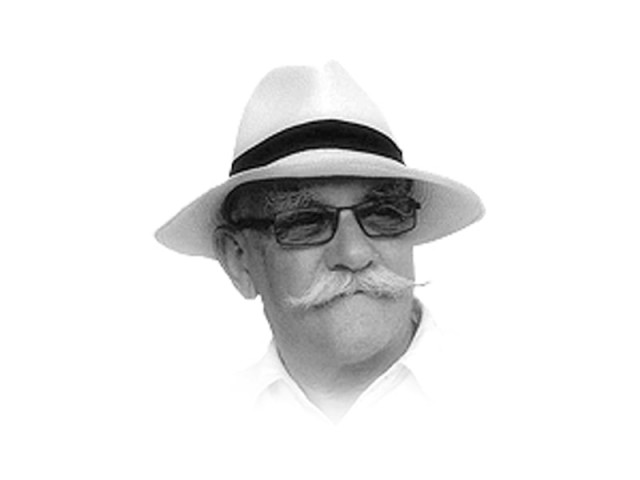The death of privacy
How many of those users pay attention to their privacy settings — or even understand how they work?

The writer is editorial consultant at The Express Tribune, news junkie, bibliophile, cat-lover and occasional cyclist
The strictures of childhood gave way to the pragmatism of the adult world but there were some things that remained unwritten taboos — one never asked how much another person earned, or what the real age of a woman was, particularly if they were obviously past the first bloom of youth. Information about oneself was grudgingly offered to another, usually over years of deepening friendship and there was a kind of muted horror of self-exposure that might have unthinkable consequences — though I confess to never being too sure what those were.
Fast-forward to March 1995 and my move to Pakistan, and along with it a loss of privacy that was as startling as a bucket of ice-water over my head. ‘Where are you going?’ ‘Where have you been and who did you meet and what did you talk about?’ ‘How much do you get paid?’ ‘Where do you live and what does your father do?’ ‘Why do you want to be alone in your room … and what are you doing in there alone?’ A blizzard of personal questions that were as unremarkable to those asking them as they were discomforting for me.
Time passed and I gradually, but not easily, got to grips with a world that understood and practiced privacy very differently to myself. As all this was going on at a personal level, there was something else, far more insidious and global in reach, crossing continents and cultures, hard at work eroding the privacy of all of us — and all of us were either ignorant or complicit in this process. Enter the internet, email and that least private of entities — the conglomerate of social media.
Whatever concerns I may have had as to privacy and the invasion of personal space pale into insignificance when compared with the almost total loss of privacy that the internet has brought into my life as a daily consumer of internet services.
Like most internet users, I carried a vague awareness that the activities of all of us were susceptible to surveillance no matter what cloaking strategies we used — be they false identities or proxy servers. Passwords were changed regularly and never shared with others and encrypted services were used where available — but all seemingly to no avail.
The disclosures in the last year by Assange and Snowden have revealed for the first time the extent to which all of us are, if not the actual subjects of surveillance by vast data harvesters run by covert agencies the world over, then at the very least potentially so. Within the last fortnight, it has emerged that partial decryption of some popular VOIP communications enables Spook Central to listen in on our conversations and browse our emails. Even the Dark Net, hitherto favoured habitat of online drug dealers and worse has been penetrated; and we may expect that in the months and years to come, governments and agencies will eventually erode whatever privacy we retain to the point at which it is a cyber folk-memory.
All these revelations have triggered any amount of huffing and puffing and formal protest from civil liberties organisations and jurists, but the unhappy reality is that the clock cannot be turned back, technology uninvented or Facebook switched off.
The internet has become a part — a vital part — of the global skeletal structure and Pakistan with approximately 30 million individual users is at the sharp end of internet growth. Facebook is the number one visited site in Pakistan, with 30 per cent of the online population registered users all gaily sharing their likes, dislikes, favourites and endless pictures of puppies and cats doing impossible things with boxes.
Yet, how many of those users pay attention to their privacy settings — or even understand how they work? I do and then came up with a start last weekend. What was I fretting about if whatever I do to guard my privacy could be circumvented and what have I to hide anyway? Yes, London in the 1950s was another planet.
Published in The Express Tribune, September 12th, 2013.
Like Opinion & Editorial on Facebook, follow @ETOpEd on Twitter to receive all updates on all our daily pieces.














COMMENTS
Comments are moderated and generally will be posted if they are on-topic and not abusive.
For more information, please see our Comments FAQ